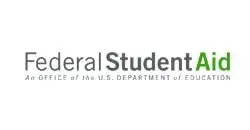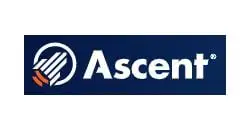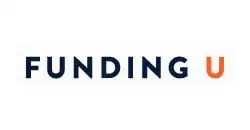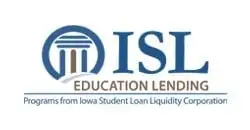8 Student Loans for Bad Credit
Student loans for bad credit can help those with a limited or poor credit history access funds for their education.
You should prioritize federal student loans since they offer flexible repayment plans and don’t consider your credit score.
Private student loans can also help fill any remaining financial gaps. Applying with a creditworthy cosigner can improve your approval odds while unlocking the lowest rates. However, certain lenders offer bad credit student loans without a cosigner.
Read more about how we chose the best student loans for bad credit.
Federal student loans for bad credit
Federal Student Loan tend to have the lowest interest rates, plus they come with special federal benefits, such as income-driven repayment plans and student loan forgiveness programs.
Also, federal student loans (except for PLUS loans) don’t require a credit check, making them an ideal choice for anyone seeking loans for students with bad credit.
You must meet other criteria, such as being a U.S. citizen or qualifying noncitizen, and being enrolled at least half time at an eligible school.
To access these loans, you must first submit a Free Application for Federal Student Aid (FAFSA). Once you do, you could be eligible for the following three types of loans. (For more information, consult our full guide to federal student loans.)
Direct Subsidized Loans: Best for federal student loan
| Loan amounts |
|
| Variable APR | Not available |
| Fixed APR | 5.50% |
| Terms |
|
| Origination fee | 1.057% |
| Minimum credit score | None |
Key features
These loans are only available to undergraduate students with financial need, but they have an advantage over unsubsidized ones because the government covers the accruing interest while you’re in school. As a result, your post-graduation balance should look the same as when you first took out the loan. The government will also cover the interest for a six-month grace period after you leave school, as well as if you put your subsidized loans into deferment.
Eligibility requirements
These loans are need-based and are specifically for undergraduates. There are no credit checks, minimum income or cosigner requirements. However, you must be a U.S. citizen or eligible noncitizen enrolled at least half time at a qualifying school.
| Pros | Cons |
|---|---|
No credit checks Flexible repayment plans The government pays interest while in school and during deferment | Includes an origination fee Low annual borrowing limits Not available for graduate students |
Direct Unsubsidized Loans: Best for graduate students
| Loan amounts |
|
| Variable APR | Not available |
| Fixed APR | 7.05% |
| Terms |
|
| Origination fee | 1.057% |
| Minimum credit score | None |
Key features
Any student can potentially qualify for federal Direct Unsubsidized Loans, since they’re not based on financial need. Note that these loans also offer graduate students a lower rate than a Grad PLUS Loan. Your financial aid award letter will outline your borrowing limit, along with any offers for other student loans, grants, scholarships or work-study opportunities. You’re not obligated to take out the maximum loan amount.
Before signing on for this debt, try using a student loan payment calculator to estimate your future monthly payments. Student loan calculators can also give you a sense of how much interest your loans will accrue over the years.
Eligibility requirements
As with other federal loans, you must be a U.S. citizen or qualifying noncitizen enrolled at least half time at an aid-eligible school. All students qualify for Direct Unsubsidized Loans, regardless of their year in school or financial need, although annual and aggregate limits apply.
| Pros | Cons |
|---|---|
No credit checks Available to all students, regardless of financial situation Lower interest rates compared to private lenders | Includes an origination fee Interest starts accruing upon disbursement Annual loan limits might not cover the full cost of attendance |
PLUS loans: Best for parent loan
| Loan amounts | Up to the cost of attendance, minus other financial aid received |
| Variable APR | Not available |
| Fixed APR | 8.05% |
| Terms |
|
| Origination fee | 4.228% |
| Minimum credit score | Credit check only |
Key features
PLUS loans are designed for parents, graduate students or professional students.
Although graduate students will get a better rate with a Direct Unsubsidized Loan than with a grad PLUS Loan, they can help fill funding gaps if you can’t access the former. Meanwhile, a Parent PLUS Loan can be an excellent option to help fund your child’s education.
All PLUS loans require a credit check, but the requirements are generally more lenient than with a private lender. Most private lenders, for instance, want to see a good or even excellent credit score, but for a PLUS Loan, you just need to show you don’t have an adverse credit history (i.e., no major financial problems in the past few years).
But even if you have a history of default or bankruptcy, you can still qualify for a PLUS loan by applying with a creditworthy person willing to endorse the loan.
Eligibility requirements
Borrowers for a Parent PLUS Loan must be the biological or adoptive parent of a dependent undergraduate enrolled at least half time at a qualifying school. Unfortunately, grandparents and legal guardians are not eligible for parent PLUS loans.
Both grad and parent PLUS borrowers must meet the general eligibility requirements for federal financial aid and undergo a basic credit history check as described above.
| Pros | Cons |
|---|---|
Loans specifically for parents and graduate students Access to federal loan perks, such as forgiveness options and income-driven repayment plans Borrow as much as you need | Includes an origination fee Only available to biological or adoptive parents — other relatives (including legal guardians) are ineligible Grad students can get a lower rate with an unsubsidized loan |
Private student loans for bad credit
Although the government is an excellent source of student loans with no credit or poor credit, you might not always be able to borrow enough to cover your school’s full cost of attendance. If you need additional funds, a private student loan could help.
Private student loans get tricky, though, because they typically require at least decent credit. Most private lenders run a credit check, where they consider your income, debt-to-income (DTI) ratio and history of debt repayment. Because of this, private student loans for bad credit can be challenging to find.
However, you can apply with a creditworthy cosigner, such as a parent. According to data firm MeasureOne, 92% of undergraduate students applied for a private student loan with a cosigner during the 2021-2022 academic year.
If you don’t have a cosigner, consider the following lenders offering student loans for bad credit. Based on our research, they offer some of the more competitive terms with easy application processes.
Ascent: Best for international students
| Loan amounts |
|
| Variable APR | 6.22% to 16.08% with autopay discount |
| Fixed APR | 4.09% to 15.66% with autopay discount |
| Terms | 5, 7, 10, 12, 15 years |
| Origination fee | None |
| Minimum credit score | Not disclosed |
Key features
Ascent Student Loans offers a range of student loans, including an “outcomes-based loan” for eligible juniors and seniors with solid grades but not enough credit history to produce a credit score. There are also graduate and professional loans, as well as funding options for career schools and coding boot camps.
International students can apply if they have a valid visa and a creditworthy cosigner living in the U.S. Ascent also offers scholarship opportunities and a referral bonus.
Eligibility requirements
Available to students enrolled at least half time. Must be a U.S. citizen, permanent resident or part of the Deferred Action for Childhood Arrivals (DACA) program. Other noncitizen students can apply with a U.S. citizen or permanent resident cosigner.
| Pros | Cons |
|---|---|
1% cash back reward upon graduation Special loans for juniors and seniors (no cosigner needed) Offers a progressive repayment option | Doesn’t disclose minimum credit score for credit-based loans First-year and sophomore students need to apply with a cosigner |
Earnest: Best for comprehensive approval process
| Loan amounts | $1,000 up to 100% of the school-certified cost of attendance |
| Variable APR | Starting at 5.89% with autopay discount |
| Fixed APR | Starting at 4.11% with autopay discount |
| Terms | 5, 7, 10, 12, 15, 20 years |
| Origination fee | None |
| Minimum credit score | 650 |
Key features
Earnest stands out for its comprehensive approval process, which considers nontraditional factors such as your savings, payment history and career trajectory. With a low minimum credit score of 650, those with a limited credit profile can apply alone.
However, Earnest does suggest applying with a creditworthy cosigner to increase your likelihood of approval and to secure a lower interest rate. Earnest also offers a “100% Rate Match Guarantee” to help you find the lowest rate possible.
Eligibility requirements
Available to undergraduate students enrolled at least half time or graduate students pursuing law, medical, business or other eligible degrees. Noncitizen students can apply if they have a Social Security number (SSN) and a U.S. citizen or permanent resident as the cosigner. Must have three years of credit history and at least $35,000 annual income.
| Pros | Cons |
|---|---|
Considers other factors beyond credit score Offers a “100% Rate Match Guarantee” Borrowers receive a nine-month grace period after leaving school | Loans not available in Nevada Cosigner release not available Borrower or cosigner must have at least three years of credit history |
College Ave: Best for multi-year borrowing
| Loan amounts | $1,000 up to 100% the cost of attendance |
| Variable APR | 5.59% to 16.69% with autopay discount |
| Fixed APR | 4.07% to 15.48% with autopay discount |
| Terms | 5, 8, 10, 12, 15, 20 years |
| Origination fee | None |
| Minimum credit score | 660 |
Key features
With College Ave’s “Multi-Year Peace of Mind” policy, you can potentially secure loans for your entire college career when you apply with a creditworthy cosigner. You and your cosigner would still need to meet the credit and income requirements, but a multi-year approval can help speed up the annual application process.
College Ave also offers four repayment plans, including a $25 monthly in-school payment to reduce accrued interest.
Eligibility requirements
Loans are available for undergraduates, graduates and parents, as well as international students with an SSN and a U.S. citizen or permanent resident cosigner. All students must meet and maintain their school’s satisfactory academic progress.
| Pros | Cons |
|---|---|
Multi-year approval saves time and stress when applying for future funds College Ave says typical application time is just three minutes | Most undergraduates need to apply with a cosigner Cosigner release isn't available until the repayment term's halfway point Doesn’t clearly define repayment protections like forbearance |
Funding U: Best for no cosigner
| Loan amounts | $3,000 to $20,000 per year |
| Variable APR | Not available |
| Fixed APR | 7.49% to 12.99% with autopay discount |
| Terms | 10 years (varies by state) |
| Origination fee | None |
| Minimum credit score | Not required |
Key features
FundingU offers affordable, no-cosigner student loans for undergraduates. This lender focuses on you and your potential without needing your parents’ financial records or an added cosigner. Your FICO Score isn’t part of the loan decision process, making Funding U a viable option for students with a limited or poor credit score.
Eligibility requirements
Students must be enrolled full time in a bachelor’s degree program at a qualifying college or university — currently, Funding U has 1,450 schools on its approved list (online-only schools are ineligible). You must also be a U.S. citizen, permanent resident or DACA recipient. Juniors and seniors tend to have higher chances of approval since Funding U considers your academic performance. Loans aren’t available for graduate students or parents.
| Pros | Cons |
|---|---|
No cosigner required Borrowers receive a dedicated loan officer to help with the loan process Offers forbearance options for students facing hardship | Loans aren’t available for part-time students, grad students or parents Approval may be more difficult for first- and second-year students Not available in all states |
ISL Education Lending: Best for competitive rates
| Loan amounts | Up to 100% cost of attendance, minus other aid received |
| Variable APR | 1.24% to 6.08% |
| Fixed APR | 3.95% to 8.01% |
| Terms | 10 or 15 years |
| Origination fee | None |
| Minimum credit score | 660 |
Key features
ISL Education Lending’s Partnership Advance Education Loan offers both undergraduate and graduate students a range of low-cost options to pay for college, so long as they have a cosigner. This loan can cover up to 100% of your school’s costs, generally without any additional fees.
Meanwhile, family members and friends looking to contribute toward a student’s education can apply for the College Family Loan.
Eligibility requirements
Students must plan to attend at least half time and maintain satisfactory academic performance at an eligible education program. Both the student and cosigner need to be U.S. citizens or permanent residents currently living in the U.S. (though Maine residents aren’t eligible). Your credit history should be clear of any student loan defaults and any active bankruptcy cases.
| Pros | Cons |
|---|---|
Family members and friends can borrow on behalf of the student Cosigner release after 24 months Three repayment options available | Loan options aren’t available in all states Forbearance and deferment policies not specified Checking your eligibility and rates may result in a hard credit check |
How to apply for student loans with bad credit
Federal student loans
As noted above, you must submit the Free Application for Federal Student Aid (FAFSA) to receive any type of federal student loan. The application opens every October and closes at the end of June, although it’s best to apply early since aid is usually distributed on a first-come, first-served basis.
Fortunately, having bad credit won’t change anything if you’re taking out a Direct Loan, as the Department of Education doesn’t consider your credit score when determining your financial aid package.
However, Grad and Parent PLUS Loan applications will still require a credit check, which looks for recent bankruptcies, defaulted loans or other red flags. If you fail this credit check, you can reapply with an endorser (who acts like a cosigner) or consider an appeal to explain your situation.
You need to submit the FAFSA every year to continue receiving financial aid. Mark your calendar now to remember the upcoming FAFSA deadline.
Private student loans
Before applying for a private student loan, it’s worth checking your credit score to see where you stand. If time permits, try improving your credit score first, since it can improve your chance of approval and hopefully help you secure a better rate. (See the next section of this article for more on how to do this.)
Next, research and review eligible lenders, paying attention to specific requirements, rates, terms and fees. Many lenders let you check your rate without impacting your credit score.
Be sure to note which lenders allow cosigners, as well as details on cosigner release, which is when you can release your cosigner from their financial responsibility for the loan.
When submitting a private student loan application, you and your cosigner (if you’re using one) must provide personal and financial information, such as proof of income. Lenders typically make a decision within a few days, if not sooner.
For further information, have a look at our full guide to private student loan applications. And if you’re a parent of a future or current college student, see our guide to parent student loans.
How to improve your credit score as a student
Most students usually don’t have “bad” credit. Rather, they generally have a limited credit profile because they haven’t had enough time to build a reputable credit history. Here are a few simple ways to establish your credit.
- Become an authorized user. If one of your parents has solid credit and keeps up with their payments, becoming an authorized user on their credit card can help establish your credit history. Make sure all of the payments are made on time and that the credit card company reports authorized users to the credit bureaus.
- Open a student credit card. Don’t have a credit card in your name yet? Consider a student credit card or secured credit card, the latter of which requires a small deposit.
- Keep up with payments. Successfully maintaining credit cards can help improve your creditworthiness, but be sure to keep your balance(s) low and never miss a payment. Maxing out a credit card or skipping payments can hurt your credit score.
How we chose our picks for best student loans for bad credit
We selected our list of favorite bad credit college loans for students above by comparing rates, terms and overall application processes. We hope you can find a loan that suits your needs by reviewing each lender’s specific loan data.
For private loan options, we assessed the following criteria to choose our bad credit student loans:
- Eligibility with credit scores as low as 650
- Flexible loan amounts that can cover up to the total cost of attendance
- Private student loan options with no origination fees
- Autopay or auto-debit discounts
Frequently asked questions
Yes, it is possible to get a student loan with no credit. For starters, most federal student loans don’t involve a credit check. These include Direct Subsidized and Unsubsidized Loans for undergraduates, as well as Direct Unsubsidized Loans for graduate students.
The only federal loans that do consider your credit are PLUS loans for parents and graduate students. These don’t require excellent credit, but rather just a check to make sure you don’t have “adverse credit” (See above for details.) And even if you do, you can still qualify by applying with an endorser.
While you can’t get a private student loan with no credit, you might be able to qualify if you apply with a creditworthy cosigner.
It may also be worth looking into schools offering income-share agreements (ISAs), although these aren’t ideal for everyone. Unlike student loans, ISAs provide funding for your education in exchange for a certain percentage of your future income for a fixed period. Check out our guide on ISAs to learn more.
Before turning to private student loans, it’s best to max out your eligibility for federal student loans. Not only do most federal student loans forgo a credit check, but they also come with more flexible repayment plans than private student loans.
But if you can’t get approved for a private student loan, look into whether you can apply with a cosigner. And if this isn’t possible, speak with your school’s financial aid office to find out about alternative ways to pay for college.
And of course, before considering any student loans, investigate your opportunities for full-ride scholarships or school grants, and consider attending a low-cost or ‘no loans’ college.
As discussed above, the Department of Education provides student loans for borrowers with bad credit, as its Office of Federal Student Aid doesn’t check your credit report (except for PLUS loans).
But if you have hit the federal student loan limit and need to borrow private student loans for bad credit, some lenders will either require you to apply with a cosigner or will lower their bar for qualification on your own.
Just keep in mind that applying for bad-credit loans without cosigner support will likely come with higher interest rates, increasing your cost of borrowing.
The credit score needed for student loans varies by lender. Many, however, won’t lend to borrowers with credit scores below 660. Here are some guidelines to follow:
| Mid-600s or lower | You may have to resort to student loans for bad credit, though applying with a cosigner could help |
| Mid-600s to 690 | You might be able to qualify on your own, but expect to face high interest rates |
| 690 to 720 | You should be able to gain lender approval and access middle-range interest rates |
| 720 and up | You could be able to access the lowest fixed and variable rates you see advertised online |
Even if you qualify for student loans for bad credit, applying with a cosigner could help you score a lower interest rate. That could potentially mean saving hundreds or thousands of dollars in interest over the course of repayment.
The majority of federal student loans don’t require any review of your credit score or report. Additionally, some private lenders, such as Funding U, make loans for students regardless of their credit file.
Student loans impact your credit just the same as other types of loans. If you make timely payments, your score will improve. However, late or missed payments will likely result in your score dropping.
The length of your credit history is one of the factors used to determine your credit score. Therefore, having a student loan helps establish your credit history and show you can responsibly handle debt.
However, your debt-to-income ratio (DTI) will change based on your overall debt, including how much you owe on student loans. Having a high DTI may limit your funding options in the future, such as how much you could borrow with a personal loan.






